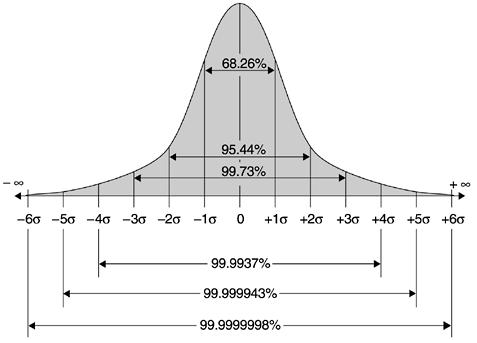Measurement and Analysis in CMMI with Six Sigma Methodology and ISO/IEC/IEEE 15939
Keywords:
CMMI, Statistics, Six Sigma, ISO/IEC/IEEE 15939, Software ProcessAbstract
Based on the premise that the quality of a software product is mostly the result of the quality of the process in which it is developed, models for the improvement of the process of software have been developed. The measurement and analysis for models assume great importance, because the evaluation of the relationship between the capacity (estimated results) and the performance (observed results) of a process is important so that it can be improved. CMMI is one of the more used models, having a great experience with success in the industry. CMMI do not indicate the measurement system to work and do not indicate its implementation. Six Sigma methodology conjugated to recommendations of ISO/IEC/IEEE 15939 aid CMMI in construction and implementation of that measurement system, as demonstrated by a case study that presented as results the indication of actions for the improvement of the software process.
References
CMMI PRODUCT TEAM. CMMI for Development, Version 1.3. Pittsburgh: Software Engineering Institute, Carnegie Mellon University, 2010. Disponível em: http://www.sei.cmu.edu/. Acesso em: 04 jul. 2014.
IEEE. IEEE Standard Adoption of ISO/IEC 15939:2007: Systems and software engineering – Measurement process. New York: IEEE, 2009. 38 p.
KAN, S.H. Metrics and models in software quality engineering. Reading: Addison-Wesley, 1995. 344 p.
LibreOffice: The Document Foundation. Disponível em: http://www.libreoffice.org/. Acesso em: 08 de dezembro de 2014.
PAULA FILHO, W.P. Engenharia de software: fundamentos, métodos e padrões. Rio de Janeiro: LTC, 2001. 584 p.
PAULK, M.C.; WEBER, C.V.; CURTIS, B.; CHRISSIS, M.B. The Capability Maturity Model: guidelines for improving the software process. Reading: Addison-Wesley, 1994. 441 p.
PSM Support Center. PSM – Practical Software e Systems Measurement. Disponível em: http://www.psmsc.com. Acesso em: 10 jul. 2014.
R CORE TEAM. R: A language and environment for statistical computing. Vienna: R foundation for Statistical Computing, 2017. Disponível em: http://www.r-project.org. Acesso em: 13 jun. 2014.
ROTONDARO, R.G.; RAMOS, A.W.; RIBEIRO, C.O.; MIYAKE, D.I.; NAKANO, D.; LAURINDO, F.J.B.; HO, L.L.; CARVALHO, M.M. DE.; BRAZ, M.A.; BALESTRASSI, P.P. Seis Sigma: estratégia gerencial para a melhoria de processos, produtos e serviços. São Paulo: Atlas, 2002. 375 p.
SALVIANO, C.F. Uma Proposta Orientada a Perfis de Capacidade de Processo para Evolução da Melhoria de Processo de Software. 2006. 246 p. Tese (Doutorado em Engenharia Elétrica e de Computação) – Universidade Estadual de Campinas, Campinas, 2006.

Downloads
Published
How to Cite
Issue
Section
License
Proposta de Política para Periódicos de Acesso Livre
Autores que publicam nesta revista concordam com os seguintes termos:
- Autores mantém os direitos autorais e concedem à revista o direito de primeira publicação, com o trabalho simultaneamente licenciado sob a Licença Creative Commons Attribution que permite o compartilhamento do trabalho com reconhecimento da autoria e publicação inicial nesta revista.
- Autores têm autorização para assumir contratos adicionais separadamente, para distribuição não-exclusiva da versão do trabalho publicada nesta revista (ex.: publicar em repositório institucional ou como capítulo de livro), com reconhecimento de autoria e publicação inicial nesta revista.
- Autores têm permissão e são estimulados a publicar e distribuir seu trabalho online (ex.: em repositórios institucionais ou na sua página pessoal) a qualquer ponto antes ou durante o processo editorial, já que isso pode gerar alterações produtivas, bem como aumentar o impacto e a citação do trabalho publicado (Veja O Efeito do Acesso Livre).
